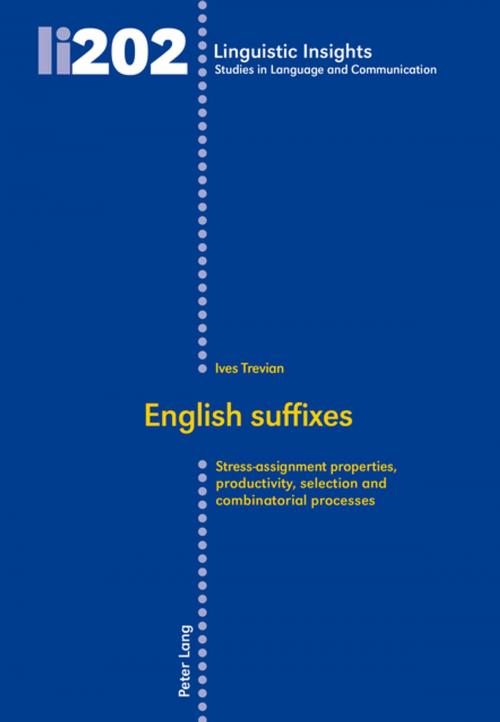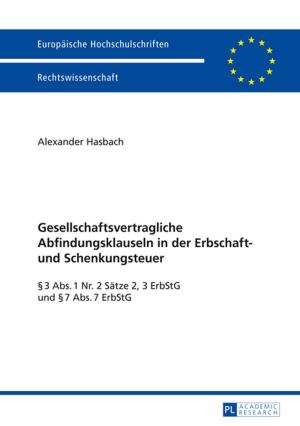English suffixes
Stress-assignment properties, productivity, selection and combinatorial processes
Nonfiction, Reference & Language, Language Arts, Public Speaking, Speech, Fiction & Literature, Literary Theory & Criticism, British| Author: | Ives Trevian | ISBN: | 9783035195002 |
| Publisher: | Peter Lang | Publication: | January 28, 2015 |
| Imprint: | Peter Lang AG, Internationaler Verlag der Wissenschaften | Language: | English |
| Author: | Ives Trevian |
| ISBN: | 9783035195002 |
| Publisher: | Peter Lang |
| Publication: | January 28, 2015 |
| Imprint: | Peter Lang AG, Internationaler Verlag der Wissenschaften |
| Language: | English |
English morphophonology has aroused considerable interest in the wake of Chomsky and Halle’s ground-breaking The Sound Pattern of English (1968). Various theoretical models have subsequently emerged, seeking to account for the stress-placement and combinatorial properties of affixes. However, despite the abundance and versatility of research in this field, many questions have remained unanswered and theoretical frameworks have often led their proponents to erroneous assumptions or flawed systems. Drawing upon a 140,000-word corpus culled from a high-performance search engine, this book aims to provide a comprehensive and novel account of the stress-assignment properties, selection processes, productivity and combinatorial restrictions of native and non-native suffixes in Present-Day English. In a resolutely interscholastic approach, the author has confronted his findings with the tenets of Generative Phonology, Cyclic Phonology, Lexical Phonology, The Latinate Constraint, Base-Driven Lexical Stratification, Complexity-Based Ordering and Optimality Theory.
English morphophonology has aroused considerable interest in the wake of Chomsky and Halle’s ground-breaking The Sound Pattern of English (1968). Various theoretical models have subsequently emerged, seeking to account for the stress-placement and combinatorial properties of affixes. However, despite the abundance and versatility of research in this field, many questions have remained unanswered and theoretical frameworks have often led their proponents to erroneous assumptions or flawed systems. Drawing upon a 140,000-word corpus culled from a high-performance search engine, this book aims to provide a comprehensive and novel account of the stress-assignment properties, selection processes, productivity and combinatorial restrictions of native and non-native suffixes in Present-Day English. In a resolutely interscholastic approach, the author has confronted his findings with the tenets of Generative Phonology, Cyclic Phonology, Lexical Phonology, The Latinate Constraint, Base-Driven Lexical Stratification, Complexity-Based Ordering and Optimality Theory.















